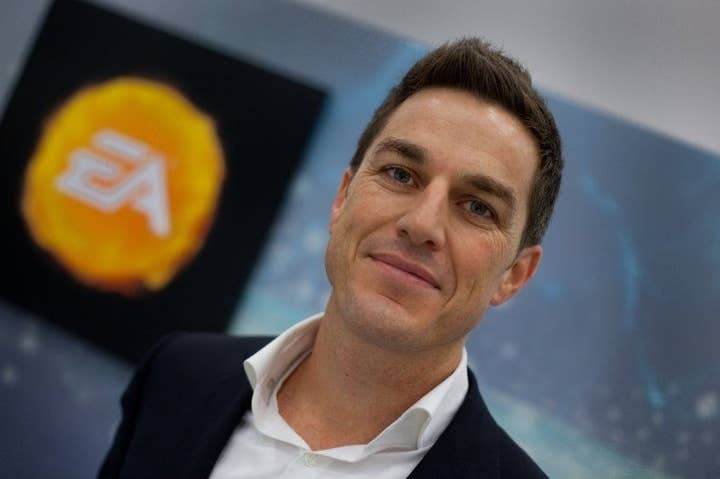EA CEO reveals his three top priorities
And how an emphasis on polish and innovation impacted Battlefield and Dragon Age
Almost one year after he took over the role of CEO at Electronic Arts Andrew Wilson explained his three priorities for the company going forward in a presentation today at GamesBeat 2014.
"The first was really establish that player-first culture back inside the company," he told the audience.
"My belief is that in the future of our industry, in a world where there are more devices that play games, more people creating content to play on those devices, that the relationships that you have with the players are going to be the deciding factor between success and failure. Your ability to actually reach those players and deliver them entertainment is really going to be based on that relationship that you have with them."
His second priority was digital and explained that if you wanted to have a relationship with players, the only way to do so was through digital means.
"That conversation you can have through digital means was really important to us and I really wanted the company to accelerate in that," he said.
"And then the third [priority] was this understanding that no longer could we operate within silos at the company, it couldn't be development on one side and marketing on the other side or sales, or finance, we actually had to work together. In this day and age every single person of the eight or nine thousand in the company had to accept responsibility for building and maintaining and nurturing and growing those relationships with players."

He went on to say the process of implementing these changes was a marathon, not a sprint. But he believed that people were already noticing a change in EA.
Wilson also spoke a little about the company's publishing process and the emphasis on two key factors: polish and innovation.
"I think what you see when you look at Metacritic or review scores, the games that review highest both at a critic level and a consumer level are the games that get that balance right. They give you amazingly new things to do and they do it in a world where there aren't flaws or bugs to disconnect you from that experience or shatter that sense of disbelief," he argued.
He went on to give examples of how this was applied practically to development, citing the recent delays to Battlefield Hardline and Dragon Age: Inquisition.
"For us, that's what quality comes down to and we challenge our teams on that every single day. When you look at something like Battlefield Hardline, we moved it because there was more innovation that could go in there. The core premise was really cool... but we think there's more innovation - we think you could be doing things more differently, so we set that in motion.
"When we moved Dragon Age we did that because we thought we needed more time to get rid of bugs. So two decisions we've made in the last few months - one around driving innovation, one around driving polish, both with the ultimate goal of quality."

